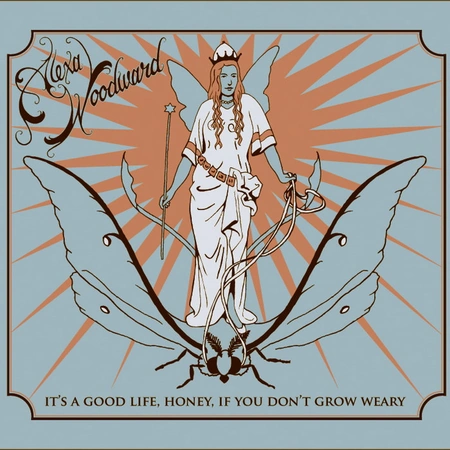My relationship with It’s a Good Life Honey If You Don’t Grow Weary
When I was in high school, I was trying to discover some music I could call my own. I liked the Avett Brothers and Sufjan Stevens, who are both indie folk-adjacent, so I decided to look at the larger genre of indie folk. I started reading the indie folk subreddit and discovering music on there.
This was before I was using Spotify regularly, so I actually have little documentation of the various artists I listened to. I believe I actually discovered Bandcamp around this time, so a lot of the listening I did was on there. I know I listened some to Shakey Graves & Paper Bird for a while. But I don’t listen to them anymore. Only one album from my indie folk foray remains a core favorite of mine.

I first heard Alexa Woodward in a video of her song Darkest Days, shared on the aforementioned subreddit. It’s a simple arrangement, with just her playing the banjo and singing. Despite the mediocre video quality, her beautiful voice is quite well-recorded. Her voice is what originally got me hooked on the song. I remember that it reminded me a bit of Judy Garland when I first heard it.
She sings with such simplicity, and at the same time, so much clarity and confidence that the full vibrancy of her voice is consistently on display. There’s a light straighforwardness to it, like she’s just singing as if she were speaking, but with the option to let her natural tone bloom at any time. This straighforwardness becomes the basis for her expressive intimacy, because her voice reacts to the words she’s singing the same as if she were really speaking them, letting the listener in on real thoughts & feelings.
I found out a while later that she had released an album with Darkest Days on it, with the rather long name of It’s a Good Life Honey If You Don’t Grow Weary*. I ended up loving every other song on it as well.
The instrumental arrangements of the album are primarily soft and pleasant. Their primary job is supporting the singing, and they do so well, by matching the gentle, confident warmth in her voice and never upstaging it. A lot of the songs are also augmented by background vocals, which only increase the delight.
I listened to this album in high school, then I listened to it during my college years, and I still listen to it now. It’s become a part of me, much in the same way Illinois has.
It’s a pretty underrated album, judging by the listening stats on Spotify and the number of ratings on Rate Your Music. Perhaps it’s just the kind of album that will never catch many people’s attention, since it’s not necessarily doing anything bold or new. But I think for the patient listener, it will have an uncommon staying power. Let it grow on you.
Have you heard It’s a Good Life Honey If You Don’t Grow Weary?
Did you appreciate it?
What do you think of Alexa Woodward’s voice?
Let me know your thoughts at my Ctrl-C email: gome @ ctrl-c.club.
* I think I read somewhere that it’s something her grandma said to her.